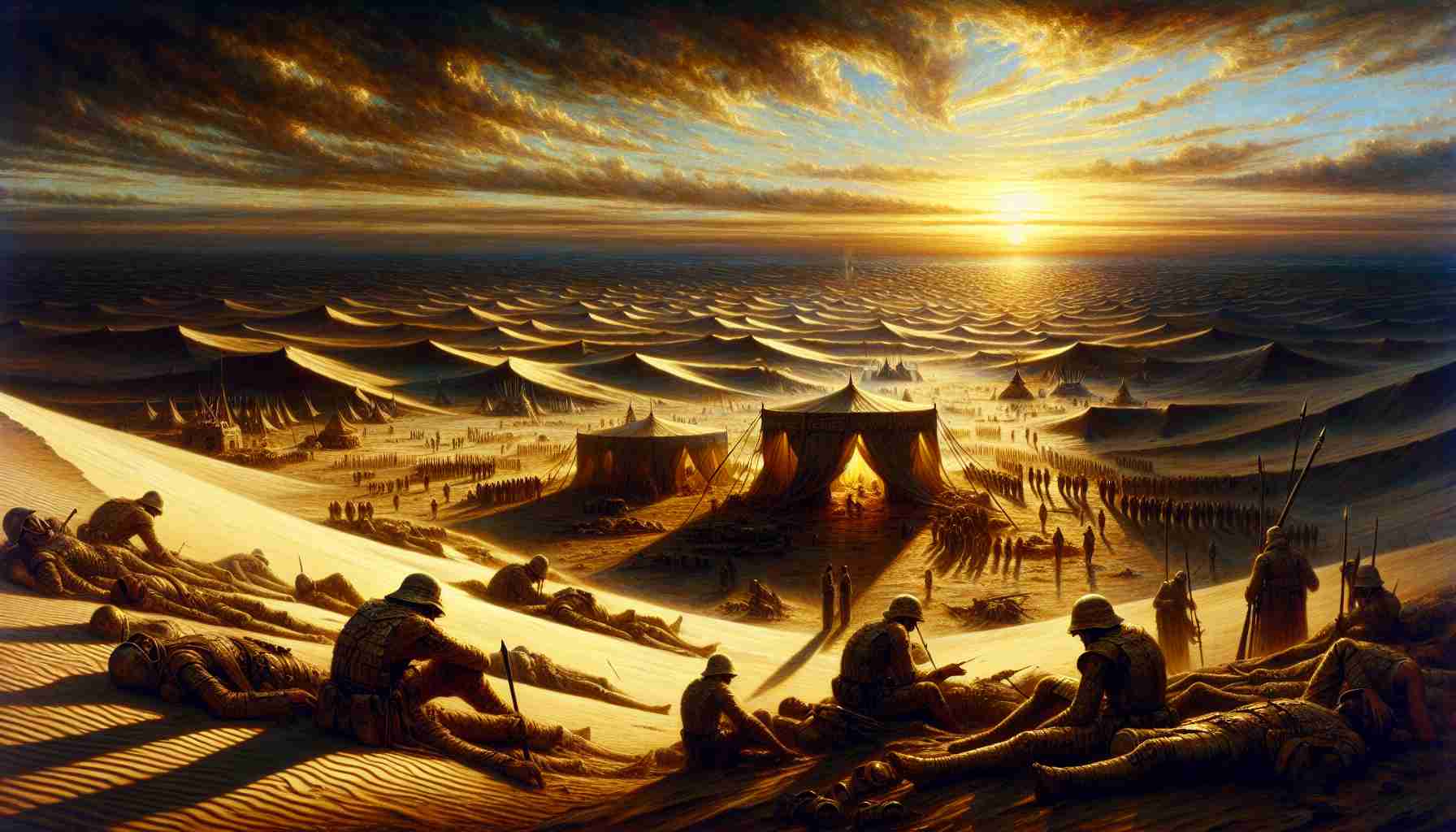

The sands of Mesopotamia clawed at Roman armor with every gust of wind, whispering omens through the cracked lips of the battlefield. Crimson shadows danced across the scorched plain as Emperor Julian, the last pagan to wear the imperial diadem, stood bloodied beneath the suffocating twilight. It was June 26, 363. The sun, a flickering god in descent, watched unblinking.
Julian bore no gaze for heaven. His eyes fixed forward, toward the Persian formations unraveling under Roman javelins. Victory had seemed near. But just as quickly, the tide reversed. A spear—no one saw from where—sliced through the dust and found his abdomen. His scream was half defiance, half disbelief. They carried him back to camp, breath dragging, his once-brilliant military garb darkening with death.
Around him clustered bearded generals and physicians whose trembling hands betrayed fear they refused to name—fear not of Persia, but of fate denied its order. For Julian had promised the gods a new Rome, one restored to the altars of Mars and Jove. Alexandria’s Christians he had starved of funds, Jerusalem’s half-rebuilt pagan shrines he had dreamed would rise above the cross. The memory of Constantine, Christian Emperor of the West, he had cursed in private.
Yet now, even as his soul hemorrhaged alongside his blood, there were murmurs from the edges of the camp. Whispers of prophecy. Of Isaiah’s words: “He brings princes to nothing; he makes the rulers of the earth as emptiness” (Isaiah 40:23). In the outer tents, Christian soldiers dared believe God Himself had stretched His hand across enemy lines.
Night fell like a shroud. In the flickering oil-lamp light of a desert tent, Julian opened eyes that no longer held pride, only cold fire. “Have I not served the gods of old?” he asked one of his officers — a Gaulish convert who wore a cross around his neck, hidden until today.
The officer bowed his head, speaking with sorrow, not triumph. “You followed shadows, Caesar. But the God of Galilee is not like your gods. He does not yield to temples built with gold, but to hearts given in faith.”
Julian’s face twisted, not in anger but regret. Some would later claim his final words were, “You have won, Galilean.” Others called it apocryphal. Truth lay buried as deeply as the spear shaft lost in his ribs.
By dawn, he was dead. The corpse of Rome’s last pagan emperor lay beneath a bloodied banner, his dreams decayed before the rigor set in. The camp mourned, but quietly, for none knew what would come next.
In the years that followed, Julian’s reign became memory—a caution more than a legend. His successor, Jovian, restored Christianity’s favored status. By century’s end, under Theodosius I, the old gods were outlawed altogether. Pagan temples shuttered their doors, and Rome—for centuries the nest of idols—knelt before the carpenter’s son from Nazareth.
And yet, far from the politics and the palaces, pilgrims began whispering his name, not Julian’s, in the shadowed streets of Rome. Constantine. The man who’d seen a cross in the sky and marched under it to victory. The man who'd planted the fragile seed of a Christian empire.
Faith, once hunted in catacombs, now climbed basilicas. In Antioch, in Carthage, in Jerusalem, the sound of Psalms replaced pagan chants. And in the East, where Julian fell, Christian stonemasons began to etch crosses into walls that had once borne eagles.
There are those who say Julian's death marked more than the failure of a man—it was the silencing of a godless ambition. A line in the dust.
That battlefield near Samarra, once scorched with imperial blood, grew silent and desolate. But beneath the surface, beneath the rocks and thorns, a different foundation stirred. No longer was Rome’s strength in spears or sacrifice, but in a crucified king too powerful to stay buried. He who stood silent before Pilate. He who bore a crown of thorns instead of laurel.
Julian had tried to resurrect gods long dead; Christ rose from the tomb and reigned eternal.
And so the Church endured. Not by the sword, not by empire, but by the breath of Him who brings princes to nothing.